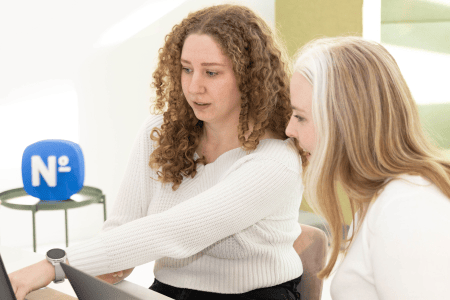Blog overzicht

Payroll stress: salarisprofessionals over hun grootste uitdagingen
Je weet dat het probleem er is. De stress. De late mutaties. Het gevoel dat je constant achter de feiten aanloopt. Maar is dat alleen bij jou? Of heeft iedereen dit? Wij vroegen het aan 297...
Recente artikelen

Verplichte vrije dagen 2026
In Nederland stelt de overheid geen verplichte vrije dagen in. Logisch, als je...

5 manieren waarop MKB’ers tijd verspillen aan declaratiebeheer
"Waar is dat bonnetje nou weer gebleven?” Je herkent het vast. Een medewerker...

Waarom grip op loonkosten begint bij inzicht in mensen
Veel ondernemers sturen scherp op omzet en marge, maar missen ondertussen...

Personeelsadministratie voorbeeld
Van formulier tot volledig systeem Iedere HR-professional weet: een goed begin...

HR-instrumenten voorbeelden
Een goed draaiende HR-afdeling herken je niet aan de hoeveelheid spreadsheets,...

Een nieuw personeelsadministratie systeem voelt als verhuizen
.. en dat lucht op Een nieuw personeelsadministratie systeem kiezen is een...

Ontvang maandelijks onze nieuwsbrief

Prinsjesdag 2025: de belangrijkste HR- en salariswijzigingen
Prinsjesdag draait allang niet meer alleen om de hoedenparade. Voor...

Stijging minimumloon juli 2025
Per 1 juli 2025 stijgt het wettelijk minimumuurloon opnieuw. Voor medewerkers...

Mag je vakantiegeld maandelijks uitbetalen
Vakantiegeld: dat jaarlijkse extraatje waar velen reikhalzend naar uitkijken....

Hoe werken de tarieven van Nmbrs? Altijd een pakket dat bij jou past
"Wat gaat dit me kosten?" Het is vaak de eerste vraag die je hebt bij nieuwe...

Salarisverwerking automatiseren: wat het betekent voor jouw carrière
"Als software mijn werk doet, wat doe ik dan?" Het is de vraag die niemand...

Salarisadministratie in Excel is in 2027 verleden tijd
Kijk eens 6 jaar terug. In 2020 werkte je waarschijnlijk nog regelmatig met...
Alle blogs

Verplichte vrije dagen 2026
In Nederland stelt de overheid geen verplichte vrije dagen in. Logisch, als je...

5 manieren waarop MKB’ers tijd verspillen aan declaratiebeheer
"Waar is dat bonnetje nou weer gebleven?” Je herkent het vast. Een medewerker...

Waarom grip op loonkosten begint bij inzicht in mensen
Veel ondernemers sturen scherp op omzet en marge, maar missen ondertussen...

Hoe werken de tarieven van Nmbrs? Altijd een pakket dat bij jou past
"Wat gaat dit me kosten?" Het is vaak de eerste vraag die je hebt bij nieuwe...

Salarisverwerking automatiseren: wat het betekent voor jouw carrière
"Als software mijn werk doet, wat doe ik dan?" Het is de vraag die niemand...

Salarisadministratie in Excel is in 2027 verleden tijd
Kijk eens 6 jaar terug. In 2020 werkte je waarschijnlijk nog regelmatig met...

Payroll stress: salarisprofessionals over hun grootste uitdagingen
Je weet dat het probleem er is. De stress. De late mutaties. Het gevoel dat je...

Product Updates | December 2025
Workflows die documenten automatisch terugsturen voor aanpassing en...

Late salarismutaties: de verborgen impact op je salariskantoor
Te laat aangeleverde mutaties zijn geen uitzondering, ze zijn de regel. Uit ons...

De toekomst van salarisadministratie: AI als jouw assistent
AI ontwikkelt zich als een sneeuwbal die van de piste rolt, maar in payroll...

Salarisadministratie automatiseren: bespaar 47% tijd op handmatig werk
Het is maandagochtend. Je logt in met een realistische to-do lijst: twintig...

Nmbrs wint voor de vijftiende keer op rij FD Gazellen
Vijftien keer! Zo vaak hebben we als Nmbrs de FD Gazellen Award al in ontvangst...
Alle blogs



